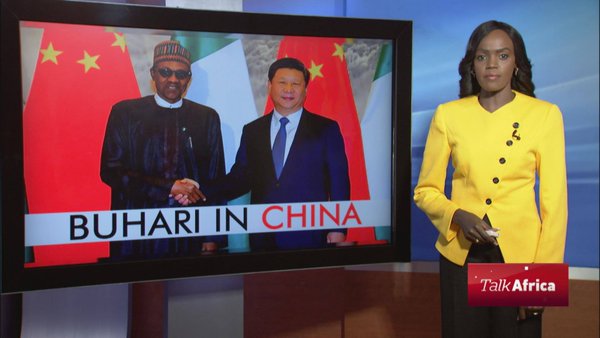Amid Nigerian President, Muhammadu Buhari’s visit to Beijing, Foreign Minister Geoffrey Onyeama announced that China has offered Nigeria a $6 billion loan to pay for infrastructure projects. President Buhari aims to increase spending on public works projects as a means of kickstarting economic growth. Nigeria is facing its worst economic crisis in decades as low global oil prices continue to hit public finances in the crude-exporting country.
Meanwhile, Finance Minister Kemi Adeosun said on April 9 that she is forecasting a budget deficit of 2.2 trillion naira ($11 billion) in 2016, and stressed the need for fiscal discipline. The forecast comes amid increasingly negative economic indicators. Inflation, as measured by the National Bureau of Statistics (NBS), rose to 12.8% in March – its highest level in almost four years – from 11.4% in February. This is mainly as a result of higher food and gasoline prices coupled with restrictions on foreign currency movements. The NBS reported on March 22 that unemployment rose to 10.4% in the final quarter of 2015, up from 9.9% in the previous quarter. Meanwhile, the IMF has lowered its 2016 growth forecast for Nigeria by almost one percentage point to 2.3%.
A short term fix
The loan deal will ease some pressure on Buhari in the short term by allowing him to announce the start of construction and other infrastructure projects. Loans from the Chinese government are likely to command lower interest rates than those available from commercial lenders. Moreover, China is unlikely to demand the reforms and oversight that the World Bank or IMF typically impose as conditions for lending. The Chinese loan is likely to take the form of a credit line that can be accessed on a project by project basis.
Nonetheless, a devaluation of the naira versus the US dollar remains likely in 2016. The Chinese loan does not address the disparity between the official exchange rate of 197-199 naira to the dollar and the actual market rate of approximately 320 naira to the dollar. Financial markets remain convinced that the government will devalue the naira, and until it does investors will remain reluctant to commit money to Nigeria. Difficulties sourcing foreign exchange, and in some cases shortages of industrial and other goods as a result of foreign exchange restrictions, will continue to adversely impact businesses with operations in Nigeria.
The loan amount is larger than expected, putting Nigeria at risk of struggling to repay if the oil price falls further. Buhari is aware of the need to diversify sources of government income, and wants to broaden Nigeria’s tax base and expand its portfolio of export goods. These measures are likely to take years to generate significant additional government revenue, and infrastructure projects are themselves unlikely to generate sufficient income to finance loan repayments in the near term.
What to watch
The IMF and World Bank will hold their spring meetings in Washington, DC April 15-17, at which a Nigerian delegation will be present. The lenders are likely to use the forum to once again exert pressure on Nigeria to loosen or scrap currency controls. Separately, equity and fixed income index provider MSCI will decide by April 29 whether or not to remove Nigeria from its Frontier Markets Index as a result of Nigeria’s currency restrictions. If MSCI expels Nigeria it would be the third such instance, following moves by J.P. Morgan and Barclays, and would add to mounting negative sentiment towards Nigeria among global investors.
The government is likely to come under intense scrutiny from civil society groups and political opponents to ensure that the money is spent on the projects for which it is intended. Nigeria has a poor record when it comes to efficiently deploying funds to build infrastructure. and money is often lost to recurrent spending, inflated salaries, over-invoicing, procurement scams and other methods of theft. Eliminating – or at least limiting – inefficiency and corruption from public works projects will be key if the government’s deal with China is to deliver on economic growth.







